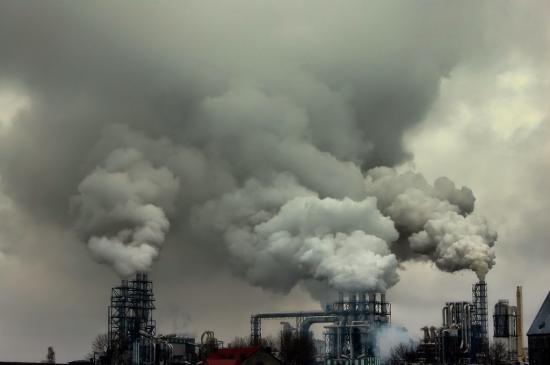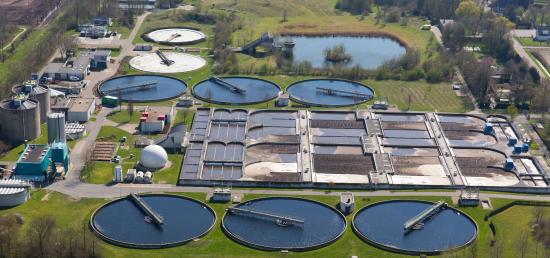Titles, Jobs and Job Opportunities of Graduates
Graduates of Environmental Engineering Departments of universities are given the title of “Environmental Engineer”. The environmental engineer investigates the measures required for planning all production and consumption activities in the environment in a way that does not harm human health, welfare and natural balance; performs quality controls in water, soil and air environments; determines the amount of factory wastes that start to become harmful to human health; tries to take the necessary measures for the design, construction and operation of systems such as sewage, water and rainwater networks in residential centers in the most appropriate way for human health.
Since environmental issues are multifaceted, environmental engineers have to work and cooperate with all other engineers, especially civil and chemical engineers, city and regional planners, architects, scientists such as biologists, chemists and physicists, social scientists such as sociologists and psychologists, economists and business managers. As long as there is agreement and harmony in the working team and the decisions taken are reflected in practice, the person can be satisfied with his/her work in this field.
During the establishment of TMMOB Chamber of Environmental Engineers, in the response given by YÖK to the letter of TMMOB Chamber of Civil Engineers dated November 23, 1988 and numbered 410-1802, dated December 14, 1988 and numbered 26694, the working areas of Environmental Engineers were defined as follows.
All kinds of urban and industrial; all kinds of design, planning and engineering services in water supply, water transmission, water distribution and water treatment, all kinds of urban and industrial; all kinds of design, planning and engineering services in wastewater collection, treatment and disposal, all kinds of planning and design services in solid waste collection; transportation, final disposal (incineration, composting, landfill), engineering services on heating system and fuel selection, treatment of flue gases related to the prevention of air pollution, coordinating interdisciplinary working groups on environmental impact assessment, To design and plan the control systems required for the prevention and minimization of industrial pollution, To take samples from different environmental segments (water, soil, air, living creatures, etc.), to carry out analysis and evaluation studies, To warn the public and relevant authorities about environmental pollution and protection of natural beauties, to propose, implement and supervise measures.
Our students who graduated and received the title of “environmental engineer”;
-Ministry of Environment and Urbanization, -Ministry of Forestry and Water Affairs,
-Ministry of Health -Ministry of Food, Agriculture and Livestock,
-Ministry of Industry and Trade,
-Ministry of Transport
-Provincial and District Municipalities,
-Iller Bank
-State Water Works,
-Provincial Directorates of Environment and Urbanization,
-Provincial Directorates of Forestry and Water Affairs,
-Turkish Statistical Institute,
-TUBITAK,
-State Planning Organization,
-Special Provincial Administrations,
-Turkish Statistical Institute,
-Energy Market Regulatory Authority,
-Turkish Petroleum Corporation,
-Directorate General of Highways,
-Directorate of State Railways,
-Universities and,
-With public institutions such as Regional Directorates of Industry,
-Medium and Large Scale Industrial Plants and Factories in the Private Sector,
-They can work in Environmental Consulting Firms and Firms that develop Environmental Technologies.
In addition, Environmental Engineers can also open their own engineering offices and do their own work in the fields of technical training, consultancy, technical reports, drinking water and wastewater treatment systems, flue gas systems, etc. With the legal regulations made in our country in recent years, an employment gap has arisen in the field of environmental engineering. In other words, Environmental Engineering is a promising profession for young people.

Air Pollution Control
Professional Fields of Environmental Engineers
- Supply, Transmission, Treatment and Distribution of Potable and Potable Water,
- Collection, Treatment, Recovery and Disposal of Domestic and Industrial Wastewater,
- Surface Drainage and Collection, Discharge and Treatment of Rainwater,
- Collection, Transportation, Recycling, Disposal and Processing of Solid Waste,
- Management and Disposal of Hazardous and Hazardous Wastes,
- Modeling Environmental Resources,
- Control, Management and Consultancy Services for the Prevention of Environmental Pollution,
- Sampling, Measurement
- Assessment and Reporting from Different Environmental Sectors,
- Control and Prevention of Noise Pollution,
- Prevention of Pollution of Soil and Groundwater Resources,
- Inspection, Implementation and Management Services for the Detection of Environmental Pollution.
What is the Environmental Engineering Profession?
The area of responsibility of the Environmental Engineering Profession is determined by the “Union of Chambers of Turkish Engineers and Architects (TMMOB)” and the relevant laws, and these working areas are summarized above. However, it is misunderstood that it is a profession dealing with landscaping, park & garden works and tree planting works. Although it is confused with “City and Regional Planning” and “Landscape Architecture”, in reality it has nothing to do with these professions/jobs.

Wastewater Treatment Plant
